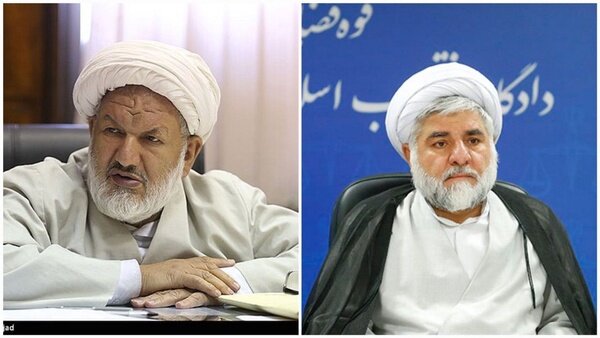Iran is reeling from a shocking assassination that claimed the lives of two prominent Supreme Court judges in Tehran on Saturday, marking a chilling escalation in attacks on judicial figures.
The incident occurred within the hallowed walls of the Supreme Court building in Tehran, state media reported, plunging the nation into mourning and raising questions about the motive behind the violence.
The Judiciary’s Mizan Online confirmed the grim news: “Three judges of the Supreme Court were targeted. Two of them were martyred.” A third judge narrowly escaped with injuries, according to reports. In a dramatic twist, the unidentified assailant reportedly ended his own life immediately after the attack.
While the motive for the shooting remains unclear, authorities have ruled out any prior connection between the attacker and the court. “The assailant was not involved in any cases before the Supreme Court,” Mizan added, offering little detail about the gunman’s identity or possible affiliations.
The victims have been identified as veteran judges Ali Razini, 71, and Mohammad Moghisseh, 68. Both were notable figures within Iran’s judicial system, known for their roles in handling high-stakes cases involving national security, espionage, and terrorism.
Razini, a seasoned legal mind, had survived a harrowing assassination attempt in 1998 when attackers planted a magnetic bomb in his vehicle. Moghisseh, on the other hand, carried a controversial reputation. In 2019, he was sanctioned by the United States for presiding over trials that allegedly disregarded evidence and fairness, according to the U.S. Department of the Treasury.
Though attacks on judges are rare, Iran has experienced a string of high-profile assassinations in recent years, raising concerns about security for public officials.
In October 2024, a Shiite preacher was gunned down in Kazeroun shortly after leading Friday prayers. A year prior, cleric Abbas Ali Soleimani was fatally shot at a bank in Mazandaran Province.
These attacks underscore the growing trend of violence targeting influential figures, often linked to political, ideological, or personal grievances.
The killings have sent shockwaves beyond Iran’s borders, with analysts speculating on the broader implications for the nation’s judiciary. Experts suggest that the incident could signal deeper security lapses or unresolved tensions within the country’s political landscape.
Human rights organizations have expressed concerns over Iran’s volatile environment, highlighting the need for transparency in investigating such attacks. “This tragic event underscores the dangers faced by public officials in volatile regions,” noted a Middle East security analyst.
Iran has witnessed several high-profile assassinations over the decades, many of which have targeted key figures in the judiciary and law enforcement. In one notable case from August 2005, Judge Hassan Moghaddas was murdered in broad daylight by gunmen who climbed into his car.
The culprits were publicly executed in 2007, a chilling reminder of the country’s stringent legal measures against such crimes.
Saturday’s attack adds to this dark chapter, casting a shadow over the judiciary and stirring debates on whether more robust measures are needed to protect officials.
Authorities have launched a full-scale investigation into the attack, but public confidence in the process remains mixed. With the identities and motives of the assailant shrouded in mystery, questions about security lapses at one of the nation’s highest institutions are inevitable.
Observers suggest that the government must act swiftly to reassure citizens and judicial staff alike. “This is not just an attack on two individuals; it’s an attack on the integrity of our justice system,” a Tehran-based lawyer commented.

